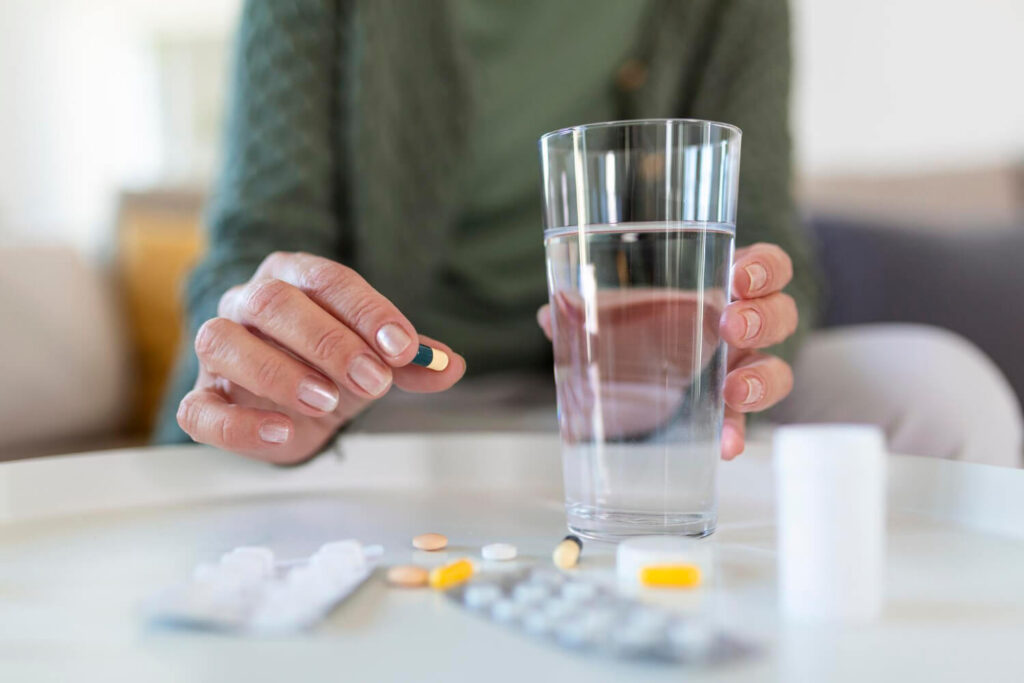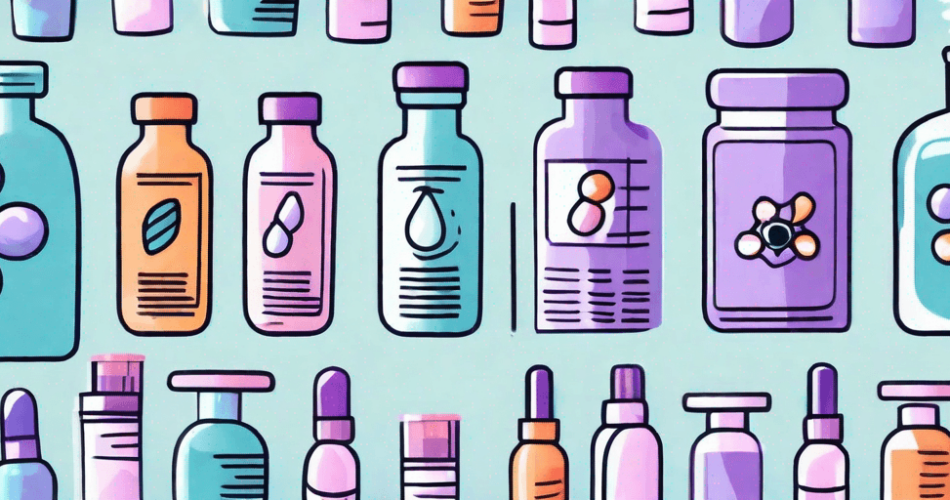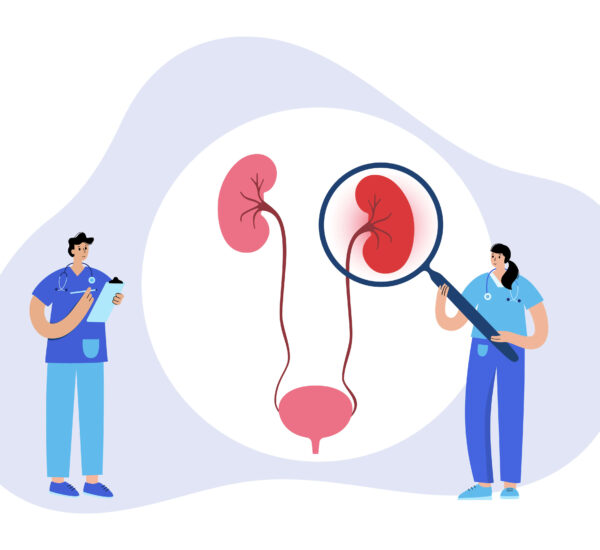Being diagnosed with urinary tract infection is one of the serious conditions to face. It commonly involves the constant feeling of discomfort, especially during urination. That’s because of an accumulated infection that affects the functions of the urinary system. With that kind of risk, organs can get infected, resulting in severe conditions. With such risk, knowing the suitable UTI medicine is a must to prevent further complications.
In today’s blog, we’ll bring light to the suitable treatment options. which may include medications, over-the-counter remedies, natural remedies, and when to seek medical attention. Let’s begin!
How Does UTI Affect Overall Health

Just like other health conditions, urinary tract infection can affect the overall health. The occurring infection can start in one part of the urinary system, until both the upper urinary tract and lower urinary tract are infected. For instance, UTI can lead to kidney infection, also known as, pyelonephritis.
Before kidney infection occurs, there are complications that can happen, such as bladder infection, kidney stone formation, etc. With the constant occurrence of these conditions, it is possible for an individual to go from UTI to a severe form of infection. When that happens, it can be life threatening as the kidneys handle the blood. Thus, infection in the blood or sepsis can be a cause of risk.
Causes & Symptoms of Urinary Tract Infection
Now that you know the severity of the situation, it is a must to be aware of the possible contributing risk factors that cause UTI. At the same time, be aware of the common symptoms that confirm the occurrence of an infection. This information is crucial in being proactive about one’s health as people can learn to avoid the possible risks to safeguard their health.
Common Causes of UTI
- Sexual activity
- Menopause Stage
- Birth Control (diaphragms and spermicides)
- Kidney stone
- Enlarged prostate
- Weakened Immune System
It’s important to note that while certain factors can increase the risk of developing a UTI, anyone can develop a UTI regardless of age, gender, or overall health. Thus, the importance of understanding these causes, and knowing how to combat their effects before it progresses to UTI.
Common Symptoms of A UTI
- pain
- nausea
- vomiting
- burning
- urgency during urination
- discomfort in the lower abdomen
- blood in the urine
- fever
When a UTI occurs, the body’s immune system responds by sending white blood cells to fight the infection. This immune response can cause inflammation, leading to symptoms. It’s important to note that these symptoms can also be indicative of other conditions, so it’s crucial to consult with a healthcare professional to confirm the diagnosis.
Seeking A Urology Doctor for Treatment

When it comes to a health check up for UTI prevention, it’s best to seek help from specialists like urology doctors. Their line of expertise are vital for accurate diagnosis, especially with diseases involving the urinary system. Additionally, the patients can rely on their knowledge to receive the suitable UTI medicine and other treatment options for a better overall health. By knowing the vitality of their role, it’s also important to choose the ideal expert.
If you are at the stage where symptoms persist, and want to take proactive actions, you might need to choose the best person to seek help from. You can always utilize online consultation platforms to meet with health experts. Although, if emergency situations are apparent, then it’s best to have a doctor near you. For instance, visiting a local hospital in your area for a health check up.
Diagnosis Process
During the health check up, the doctor will require procedures and tests to ensure that UTI is present. Procedures like urine culture, urinalysis, and imaging tests are just some of the instruments to verify the patient’s condition. Aside from that, a physical exam will also occur to check if there’s pain and tenderness in some parts of the body.
With the combined results from each of the tests, the doctor can provide a more accurate diagnosis regarding the patient’s health. For instance, the result from the urine sample, combined with lower back pain and other symptoms can signify UTI occurrence.
Of course, the test results can also identify the severity of the condition. That means, the doctor can analyze the condition and provide details of whether the type of UTI that the patient has
UTI Medicine & Other UTI Treatment Options
How Antibiotics Work Against UTI

Antibiotics are typically taken orally and can target the bacteria in the urinary tract. They reach the urinary system via the bloodstream, where they help eradicate the infection. The oral antibiotics work by interfering with the essential processes of the bacteria, such as cell wall synthesis or protein production.
Once the antibiotics reach the urinary tract, they bind to specific receptors on the bacterial cells, disrupting their normal functioning. This disruption weakens the bacteria and prevents them from multiplying, eventually leading to their death. By eliminating the bacteria causing the UTI, antibiotics provide relief from the painful symptoms and help the body recover.
It’s crucial to complete the full course of antibiotics to ensure the complete elimination of the bacteria and prevent the recurrence of the infection. Incomplete courses of antibiotics can lead to the survival of some bacteria, which may develop resistance to the medication. This can make future infections more difficult to treat and increase the risk of complications.
Furthermore, taking the medication at the recommended dosage and frequency ensures that the antibiotic reaches the necessary concentration in the urinary tract to effectively eliminate the bacteria. Thus, helping to minimize the risk of side effects and promoting a faster recovery.
Different Types of Antibiotics for UTI
There are several types of antibiotics commonly prescribed as UTI medicine. Each antibiotic has its own mechanism of action and spectrum of activity against different bacteria.
Here are the different UTI medicine:
- Trimethoprim-sulfamethoxazole: Also known as co-trimoxazole, a combination antibiotic that works by inhibiting the production of folic acid in bacteria.
- Nitrofurantoin: Damages bacterial DNA, preventing them from replicating
- Ciprofloxacin: Belongs to a class of antibiotics called fluoroquinolones and works by inhibiting an enzyme called DNA gyrase, which is essential for bacterial DNA replication
- Fosfomycin: Disrupts the synthesis of bacterial cell walls, weakening the bacteria and making them more susceptible to destruction by the immune system.
The choice of antibiotic depends on various factors, such as the suspected bacteria and the sensitivity of that bacteria to specific antibiotics. Healthcare professionals rely on laboratory tests to identify the bacteria causing the UTI and determine its susceptibility to different antibiotics. Based on these results, they can prescribe the most appropriate antibiotic to effectively treat the infection.
Over-the-Counter UTI Medicine

In addition to prescription antibiotics, there are other medications that can help alleviate the symptoms of UTI. That includes the over-the-counter medications.
When faced with the discomfort of a UTI, many people turn to over-the-counter medications for relief. These medications can help alleviate symptoms and provide temporary relief while waiting for a doctor’s appointment or prescription.
Pain Relievers for UTI Symptoms
UTI can cause significant discomfort, and pain relievers can provide much-needed relief. Pain relievers work by reducing inflammation in the urinary tract, which can help alleviate pain and discomfort.
One example of a pain reliever is nonsteroidal anti-inflammatory drugs (NSAIDs) like ibuprofen. It can help reduce the discomfort associated with UTI symptoms. These medications can help relieve the pain, reduce inflammation, and bring down any accompanying fever.
While over-the-counter pain relievers can be easily accessed, it is still important to use a recommended dosage. So, consulting a healthcare professional is still important.
Natural Remedies and Lifestyle Changes
In addition to medications, natural remedies and lifestyle changes can play a significant role in preventing and managing urinary tract infection (UTI).
Hydration

One of the key lifestyle changes that can help prevent UTI is staying well-hydrated. Drinking an ample amount of water throughout the day can help maintain urine flow and dilute the concentration of bacteria present in the urinary system. This can effectively flush out germs or bacteria from the urinary tract, reducing the risk of infection.
Furthermore, when you drink enough water, it increases the frequency of urination, which helps to flush out any harmful bacteria that may have entered the urinary tract. Additionally, adequate hydration helps to keep the urine diluted, making it less favorable for bacterial growth. This can be particularly beneficial for individuals who are prone to recurrent UTI.
It is recommended to drink at least eight glasses of water per day, although individual needs may vary depending on factors such as age, sex, activity level, and overall health. It is important to note that while water is the best choice for hydration, other fluids like herbal teas and unsweetened fruit juices can also contribute to your daily fluid intake.
Role of Diet in UTI Prevention and Treatment

Aside from hydration, certain dietary choices may also help prevent UTI. Research suggests that incorporating specific foods into your diet can have a protective effect against this condition.
For instance, cranberry products, such as cranberry juice or cranberry supplements, have long been associated with UTI prevention. They contain compounds that may inhibit the adhesion of bacteria to the urinary tract, making it more difficult for them to cause an infection. Similarly, blueberries, which are rich in antioxidants and have similar anti-adhesive properties, may also offer some protection against UTIs.
In addition to incorporating potentially beneficial foods into your diet, it is also important to be mindful of certain dietary irritants that can potentially exacerbate UTI symptoms. Caffeine, alcohol, and spicy foods are known to irritate the bladder and can worsen UTI symptoms. Avoiding or minimizing the consumption of these irritants can help reduce bladder irritation and potentially alleviate UTI symptoms.
While cranberry and blueberry products can be beneficial, it is important to note that they should not be relied upon as a sole treatment for UTI. At the same time, these natural remedies and lifestyle changes should not replace medical treatment. If you suspect you have a UTI or are experiencing persistent symptoms, it is crucial to consult with a healthcare professional for an accurate diagnosis and appropriate treatment.
Final Takeaway
UTI can be distressing, but there are various treatment options available. These treatment options are a combination of prescription medications and natural remedies. Despite that, it is still important to seek reliable sources such as consulting doctors for accurate diagnosis and proper treatment options.By understanding the available treatment options and seeking timely intervention, individuals can effectively manage UTI and minimize their impact on daily life. Book an online consultation or meet with a health expert like a urologist to receive the suitable UTI medicine today!



